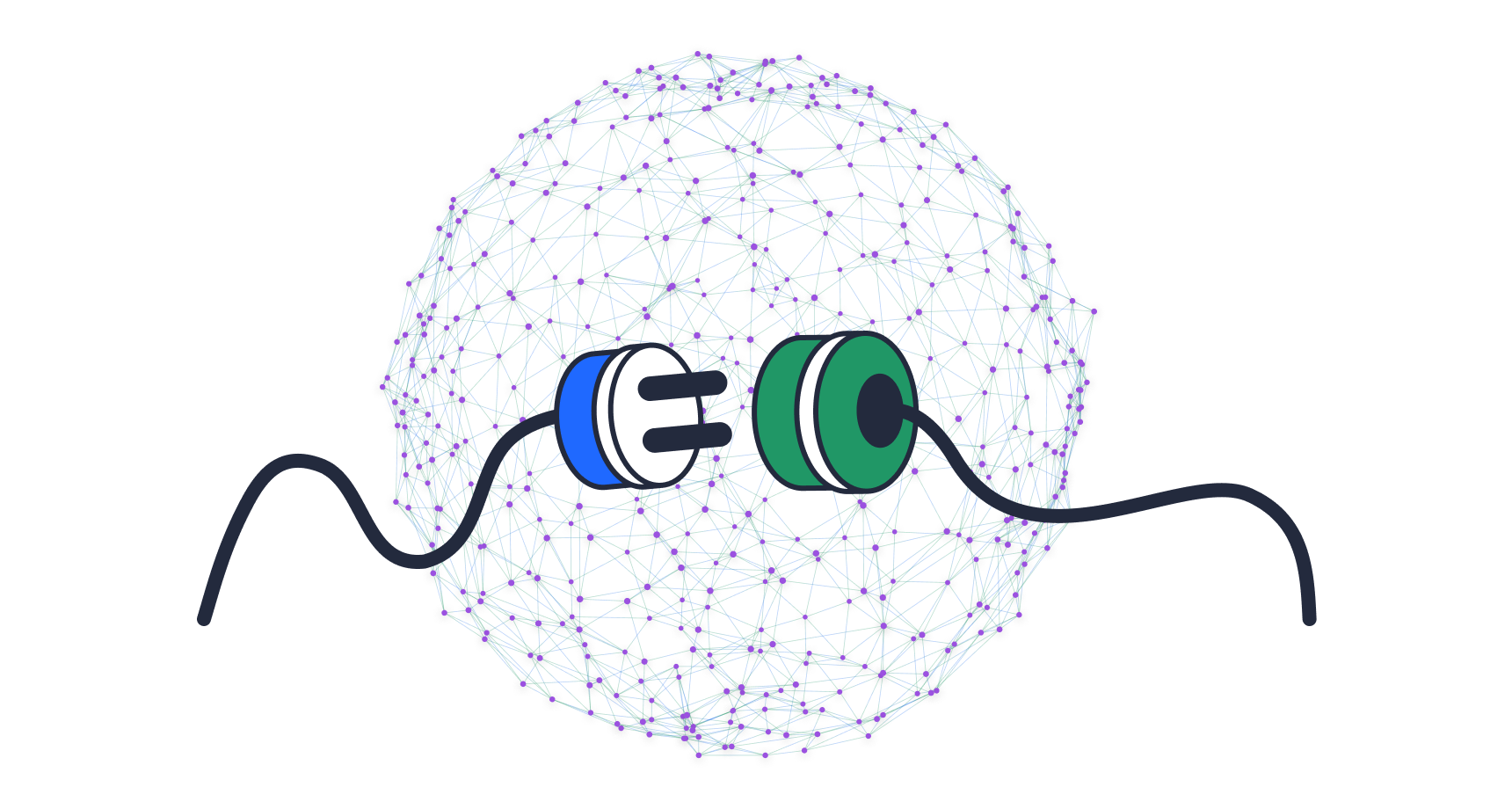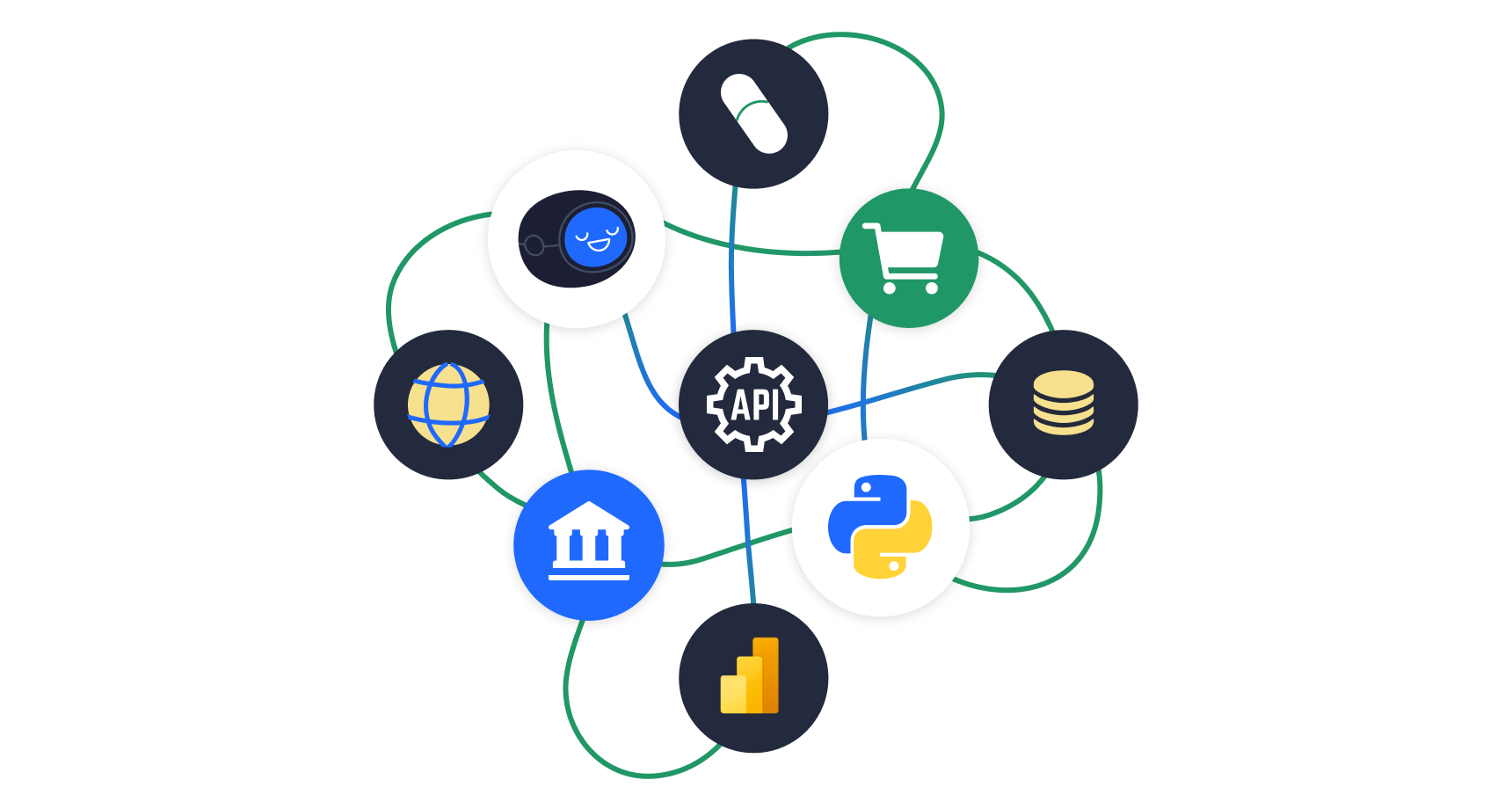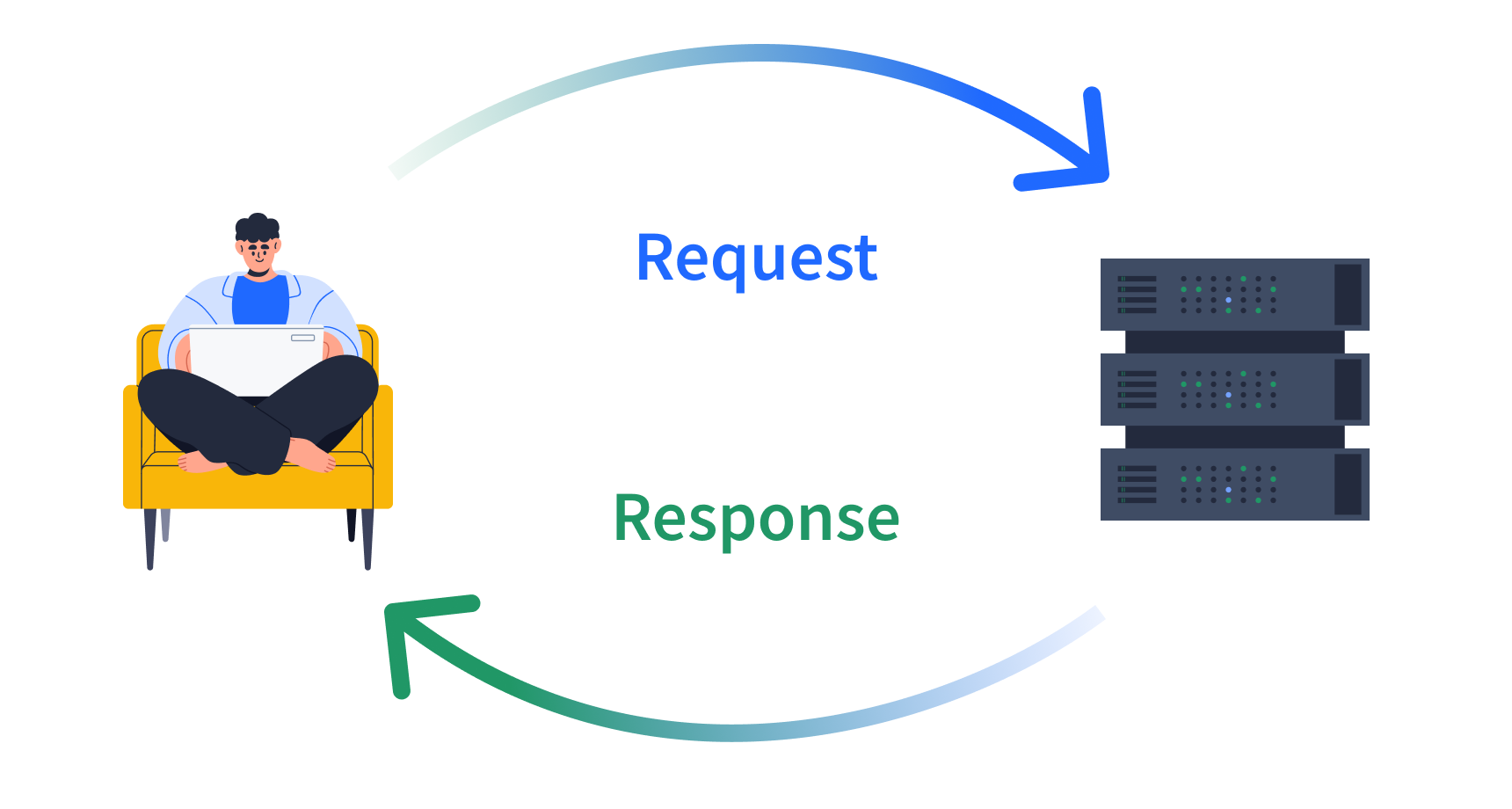10 API Skills You Need to Work with AI
Ever paid for coffee using your phone, booked a flight online, or asked ChatGPT for help with a tricky question? If so, you’ve benefited from APIs. These digital middlemen power the seamless data exchange that makes modern apps, services, and AI tools work smoothly behind the scenes.

But to make the most of APIs, you’ll need more than just a basic understanding of how they work. API skills are about knowing how to make requests, handle responses, filter data, and securely connect apps to the tools you need—especially when working with AI-powered services.
In this post, I’ll break down the 10 API skills that every tech professional should have, whether you’re a developer integrating services or a data analyst pulling real-time data. And if you’re ready to get hands-on, check out our Generative AI Fundamentals in Python skill path to learn how to work with APIs in real-world AI projects.
Let’s jump in and explore how APIs can enhance your projects and open up new opportunities.
10 Must-Have API Skills for AI Success
To get the most out of AI technologies, you need a diverse set of API skills. These skills cover everything from understanding documentation and making requests to handling errors and integrating systems seamlessly. Build expertise in them, and you’ll be ready to tackle any API-related challenge.
- Reading API Documentation
- Understanding URLs and Endpoints
- Making HTTP Requests
- Authentication and Security
- Interpreting API Responses
- Handling JSON Data
- Using Parameters and Filters
- Error Handling and Debugging
- Managing Rate Limits and Tokens
- Seamless API Integration
Click any of the links above to learn more about these essential API skills and see how they apply in real-world scenarios.

1. API Documentation
Think of API documentation as a well-organized instruction manual that guides you through interacting with an API successfully. Whether you’re requesting weather data, accessing AI models, or connecting payment gateways, good documentation explains how to do it step by step, covering endpoints, authentication, and the structure of requests and responses.
Why Understanding API Documentation Matters
Many developers jump straight into writing API requests without exploring the full documentation, which often leads to frustrating errors and wasted time. But those who know where to look can:
- Quickly find the right API methods, reducing development time.
- Format requests correctly and avoid common errors like authentication failures or missing parameters.
- Take advantage of advanced API features, like data filtering, pagination, and batch requests.
Real-World Example
Let’s say you’re building a weather app that fetches real-time data. Skimming the documentation might help you get basic weather reports working. But by fully reading it, you could discover hidden features—like hourly forecasts, historical data, or severe weather alerts—that give your app a competitive edge.
Tips and Tricks for Navigating API Documentation
Here are some tips to help you navigate API documentation efficiently:
- Know where to find it: Most APIs have official documentation available on their websites. Look for links labeled “Docs”, “API Reference”, or “Developer Portal”.
- Watch for multiple formats: Some APIs offer guides in various formats—REST API docs, SDK-specific guides, or even community-maintained wikis.
- Common pitfalls: Don’t skip the authentication section—it’s often the most critical and the most overlooked. Also, check rate limits and error handling early to avoid nasty surprises when scaling up.
How to Practice Reading API Documentation
- Start with a beginner-friendly public API, like OpenWeather or GitHub, and practice basic requests.
- Replicate example requests and responses from the docs to ensure you understand how the API communicates.
- Challenge yourself by exploring optional features, like filtering data or paginating through large datasets.
Building confidence in reading API documentation will make you a more effective problem-solver, allowing you to avoid common mistakes and create better applications.
2. Understanding URLs and API Endpoints
Whenever you use a search engine or click a link to a website, you’re interacting with URLs and, behind the scenes, API endpoints. But what do these terms actually mean, and why do they matter when working with APIs?
What Are URLs and Endpoints?
A URL (Uniform Resource Locator) is a web address used to locate resources on the internet, like a web page, image, or API service. It’s what you type into a browser or use to direct applications to access specific resources.
An endpoint is a specific URL that serves as an entry point for interacting with an API. Endpoints are where APIs receive requests and deliver responses, often tied to a specific function, like retrieving user data or posting a new comment.
Key Difference: While URLs can refer to any online resource, endpoints are URLs specifically set up to enable API communication. Endpoints process requests and return structured data, often in formats like JSON or XML, making them central to working with APIs effectively.
Breaking Down a URL
Let’s take a closer look at this example URL used in an API call:
https://api.weather.com/v1/location/NYC?format=jsonHere’s what each part means:
- Protocol:
https://ensures secure communication by encrypting the data being sent and received. - Domain:
api.weather.comtells the browser or API client which server to connect to. - Path:
/v1/location/NYCspecifies the exact resource being requested—in this case, weather information for New York City. - Query parameter:
?format=jsonspecifies that the response should be in JSON format.
Knowing how these pieces fit together allows you to craft accurate requests and fetch the right data efficiently.
Why URLs and Endpoints Matter for APIs
When you’re working with APIs, URLs and endpoints help you:
- Retrieve targeted data: Well-defined endpoints ensure you get exactly the information you need without fetching unnecessary data.
- Maintain secure interactions: Using HTTPS ensures that sensitive data is protected during exchanges.
- Build scalable systems: APIs designed with efficient endpoints can handle large volumes of requests without slowing down.
Getting Started: Tips for Practicing
If you’re just getting familiar with URLs and endpoints, here are a few tips to help you build this skill:
- Start with beginner-friendly APIs: Try making simple requests using the OpenWeather API or JSONPlaceholder.
- Practice CRUD operations: CRUD stands for Create, Read, Update, and Delete, the main functions you’ll perform with APIs using methods like GET (to read data), POST (to create data), PUT (to update data), and DELETE (to remove data).
- Focus on security: Learn how to validate inputs and use authentication methods like API keys or OAuth to keep your requests secure.
Once you’re comfortable working with URLs and endpoints, you’ll be ready to create efficient API-driven applications that fetch exactly what you need without wasting bandwidth or time.
3. Making HTTP Requests

Whenever you connect to an API, you're making an HTTP request behind the scenes. APIs built on RESTful architecture rely on these requests to exchange information between applications and servers. To work effectively with APIs, you need to know how to make these requests and interpret their responses.
The Four Key HTTP Methods
APIs typically use the following HTTP methods, often referred to as CRUD operations (Create, Read, Update, Delete):
- GET: Requests data from the server (e.g., fetching user details)
- POST: Sends new data to the server (e.g., submitting a form)
- PUT: Updates existing data on the server (e.g., changing profile information)
- DELETE: Removes data from the server (e.g., deleting an account)
Each method has a specific role in interacting with APIs. For example, you’d use GET to retrieve weather data and POST to create a new user account. Knowing when to use each method is the foundation for working efficiently with APIs.
Real-World Applications of HTTP Requests
Knowing how to make HTTP requests is like having a superpower when working with APIs. Here’s how it applies in real-world scenarios:
- Accessing AI services: Communicate with AI models using POST requests to send inputs and GET requests to retrieve predictions.
- Managing cloud resources: Use APIs to deploy, modify, or delete cloud infrastructure components with PUT and DELETE requests.
- Automating workflows: Retrieve data from multiple sources with GET requests and integrate it into your automation scripts.
These requests aren’t just for developers—data analysts use them to extract information from APIs, streamlining data collection and analysis.
Overcoming Common Pitfalls
When learning HTTP requests, beginners often run into issues such as:
- Sending incorrect payloads: Ensure you format the data properly when using POST or PUT methods.
- Handling different response codes: Know what common HTTP status codes like 200 (OK) and 404 (Not Found) mean, and how to handle errors gracefully.
- Security issues: Always use secure connections (HTTPS) and proper authentication to protect sensitive data.
Tips for Practicing HTTP Requests
- Start small: Use beginner-friendly APIs like the JSONPlaceholder API to practice sending basic GET and POST requests.
- Explore API clients: Tools like Postman help you experiment with requests and inspect responses without writing code.
- Integrate requests in your projects: Try making API calls in Python using libraries like
requeststo get real-world practice.
Understanding HTTP requests is essential for anyone working with APIs, whether you’re building software or analyzing data. By picking up these basics, you’ll be well-prepared to handle more advanced API interactions.
4. API Authentication Methods
APIs often handle sensitive data, so authentication is key to ensuring only authorized users and applications can access them. Think of it like showing an ID at a secure building—without proper credentials, entry is denied. Understanding how API authentication works is a core part of using APIs securely and efficiently.
Breaking Down Common Authentication Methods
Here’s a look at three popular methods you’ll encounter when working with APIs:
- API Keys: Simple and commonly used for public APIs. API keys act like passwords—if you have the key, you gain access. They’re easy to implement but should be kept secret to prevent misuse.
- OAuth: Often used by larger services (like Google or Facebook), OAuth lets users grant access without sharing their credentials directly. This makes it more secure for handling sensitive information.
- Basic Authentication: Involves sending a username and password with each request, typically encoded using Base64. It’s easy to set up but requires HTTPS to be secure.
Real-World Application
Imagine you’re building an application that retrieves user data from a third-party API. Without authentication, anyone could make requests and potentially access sensitive information. With OAuth, for example, users can grant your app permission to access their data without needing to give up their passwords.
Tips for Working with API Authentication
Here are some tips to make sure you handle authentication securely and avoid common issues:
- Always use HTTPS to encrypt API requests and responses, especially when transmitting sensitive credentials.
- Keep your API keys and tokens secure. Avoid hardcoding them into your source code—store them in environment variables instead.
- Regularly rotate and revoke access tokens to minimize security risks if a key or token gets compromised.
Learning in Action
If you’re new to API authentication, start by experimenting with free APIs that use API keys or OAuth. Check out public services like the Google Maps API or OpenWeather API to practice requesting data and handling authentication errors.
5. API Response Types
Understanding API response types is useful for diagnosing and fixing problems in application development. When you make an API request, the server responds with a status code—basically a "report card" on how things went. Did the request succeed, fail, or run into an issue on the server? Knowing how to interpret these codes is key to building robust, user-friendly applications.
What Are API Response Types?
An API response type refers to the status code and message the server sends back after receiving a request. This response can indicate success, failure, or errors that need troubleshooting. Here’s a breakdown of common codes and what they mean:
- 200 (OK): The request was successful, and the server sent back the requested data.
- 401 (Unauthorized): The request is missing valid authentication credentials.
- 404 (Not Found): The server couldn’t find the resource you requested. This often happens when the endpoint or URL is incorrect.
- 500 (Internal Server Error): Something went wrong on the server. This typically requires server-side troubleshooting.
- 503 (Service Unavailable): The server is temporarily unable to handle the request, often due to maintenance or overload.
Why Do Response Codes Matter?
Knowing how to interpret these codes goes beyond spotting errors. Developers who understand response codes can:
- Diagnose issues quickly—whether they stem from the client-side or the server.
- Implement error-handling mechanisms that gracefully recover from failures.
- Provide users with meaningful feedback when something goes wrong (no one likes generic “Error” messages).
Real-World Example: Handling a 404 Error
Imagine your application makes a GET request to retrieve user data, but the server returns a 404. This could mean the URL endpoint is incorrect, or the resource no longer exists. Instead of letting the application break, you can implement error handling that shows the user a helpful message, like “User not found—please try again.” This keeps the user experience smooth while you investigate the issue.
Tips for Working with API Response Types
- Practice parsing responses: Use public APIs to test how different response codes behave. For example, intentionally trigger a 404 by requesting a non-existent endpoint.
- Implement logging and monitoring: Keep track of response types over time to identify recurring issues that may need fixing.
- Use Dataquest’s hands-on projects: Our Generative AI Fundamentals in Python courses include practical exercises on handling API responses and improving your debugging workflow.
Knowing the different API response types allows you to build resilient applications that recover gracefully from errors. With these API skills, you’ll be better equipped to troubleshoot, communicate issues to teammates, and improve the overall stability of your applications.
6. JSON Format Handling
JSON, or JavaScript Object Notation, is a simple and widely used data format at the core of most modern APIs. Think of it as a common language that allows different systems to communicate by exchanging data efficiently. If you've ever retrieved data from a web service like a weather app or an AI chatbot, chances are that data came to you as JSON.
What Makes JSON So Popular?
JSON is designed to be easy for humans to read and write and for machines to process. Its structure revolves around two simple concepts:
- Name/value pairs: Similar to Python dictionaries or key-value pairs in other programming languages.
- Ordered lists of values: Similar to arrays or lists.
This simplicity allows JSON to handle everything from single data points to complex, nested structures representing entire datasets. For example, API responses from OpenAI’s models often return structured JSON, making it easy to extract text, metadata, and other outputs.
Why JSON Is Essential for API Work
Handling JSON effectively is a key API skill because:
- Most APIs return responses in JSON format, including services like OpenAI, Spotify, and Twitter.
- JSON can easily represent complex data (like hierarchical structures) while staying lightweight.
- It works seamlessly with popular programming languages like Python, JavaScript, and more.
Imagine pulling data from an AI model’s API and using JSON to parse user prompts, model responses, and performance metrics. Understanding how to work with this data format is invaluable when building AI applications or integrating multiple APIs into a single project.
Real-World Applications of JSON
JSON powers a variety of applications, including:
- Chatbots exchanging user messages and AI responses in JSON
- Machine learning models training on datasets stored in JSON format
- Recommendation engines tailoring user suggestions based on JSON-encoded interaction data
Because of its versatility, JSON is a major part of API-driven workflows across industries like e-commerce, social media, and cloud computing.
How to Get Started with JSON
Here are practical steps to help you develop this API skill:
- Learn JSON basics: Study its syntax, structure, and how it represents nested data.
- Practice parsing and generating JSON data using libraries like Python’s
jsonmodule or JavaScript’sJSON.parse(). - Work on real-world projects: Pull data from public APIs and practice converting it to usable formats.
JSON is a key player in making services talk to each other, enabling the smooth flow of data that modern applications rely on. By getting comfortable with JSON, you’ll be better equipped to create efficient, API-powered solutions that handle data seamlessly.
7. Working with API Parameters and Data Filtering
When you make an API request, you don’t always want all the available data—it would be like ordering a pizza and getting the entire menu delivered instead. API parameters and data filtering solve this by letting you request exactly what you need. This makes your API interactions more efficient and reduces unnecessary data traffic.
What Are API Parameters and Data Filters?
API parameters are extra bits of information you include with your API request to customize the response. They tell the server what you want—whether it’s limiting results to a specific time period, sorting data, or narrowing down to particular categories. Filters work similarly by restricting the data to match specific conditions.
Example: Let’s say you’re building a news app. By including parameters like ?category=technology or ?date=today, your API request will return only today’s tech news instead of the entire archive.
Why Are API Parameters and Filtering Important?
- Improved performance: Reduces data transfer by requesting only what’s needed, speeding up your app.
- Faster data processing: Streamlines analysis by working with a smaller, relevant dataset.
- Better user experiences: Delivers personalized content, making apps more responsive and engaging.
For example, an e-commerce site can use filtering to show users items within their price range or preferred categories without loading the entire catalog.
Common Use Cases
API parameters and filters are widely used across industries:
- Content curation: Social media platforms filter posts to show relevant updates based on user preferences.
- AI model training: Data scientists filter training datasets to include only relevant samples, improving model accuracy.
- Business dashboards: Analytics tools filter data to display key metrics tailored to each department or user.
Security Considerations
Filtering data doesn’t just affect performance—it also involves security. Improperly handled API parameters can lead to vulnerabilities like unauthorized data access. Always validate input, use proper authentication, and apply least-privilege principles to minimize risks.
How to Get Started
- Start by exploring API documentation to understand the available parameters and filters.
- Practice crafting requests with different filtering options using APIs like OpenWeatherMap or News API.
- Experiment with combining multiple filters to create complex queries (e.g., filtering products by price, availability, and rating).
Mindfully creating API parameters and filters ensures you’re getting exactly the data you need while keeping your application efficient, secure, and responsive.
8. Error Handling and Debugging APIs

Errors are inevitable when working with APIs. From missing API keys to server timeouts or incorrect response formats, issues can arise at any stage of communication. Developing strong error handling and debugging strategies ensures your applications remain robust, even when things go wrong.
Understanding Common API Errors
API errors typically fall into three categories:
- Client-side errors (4xx): Caused by issues on the client end, such as incorrect URL paths or missing parameters. Common status codes include 400 (Bad Request) and 404 (Not Found).
- Server-side errors (5xx): Indicate that the server is unable to process the request, often due to downtime or internal issues. Examples include 500 (Internal Server Error) and 503 (Service Unavailable).
- Network-related errors: Connection failures or timeouts that occur during the request. These issues often require retries or fallbacks.
Best Practices for Effective Error Handling
- Use clear, actionable error messages: Ensure that errors returned by the API are human-readable and provide guidance on what went wrong.
- Handle HTTP status codes correctly: Integrate logic that processes API responses based on the status code (e.g., retrying on 503 errors).
- Implement retries and fallbacks: For transient issues like timeouts, design retry mechanisms with exponential backoff to avoid overwhelming the server.
- Log and monitor API errors: Use logging frameworks or tools like Postman to track and analyze error patterns over time.
Debugging Tips and Tools
When debugging an API issue, consider these steps:
- Check the request: Verify the URL, headers, query parameters, and payload to ensure they meet the API's requirements.
- Inspect the response: Look for status codes, response times, and returned error messages for clues.
- Use debugging tools: Tools like Postman, curl, and Python’s
requestslibrary can help isolate issues. For server-side debugging, explore server logs and API gateways. - Test in isolation: Test API endpoints independently before integrating them into your application workflow.
How This API Skill Impacts Employment Opportunities
Developers who excel at error handling and debugging are in high demand. By anticipating errors and resolving them efficiently, you’ll contribute to creating stable, high-performing applications. Whether you’re fixing a 404 error or optimizing retry mechanisms, your ability to debug ensures smooth API interactions and better user experiences.
9. Handling API Rate Limits and Tokens
It's a regular Monday―you’re sending tons of requests to an API and gathering data smoothly—until everything grinds to a halt. Suddenly, your requests are rejected, and you’re left wondering what went wrong. This often happens when you hit an API’s rate limit. To prevent this, you need to understand how rate limits work and how to manage API tokens, the digital keys that grant access to protected resources.
What Are Rate Limits?
Rate limits control the number of API requests you can make within a set timeframe. For example, an API may allow 100 requests per minute. Exceeding this limit can lead to temporary access blocks, helping the API maintain performance and prevent server overload.
What Are API Tokens, and How Are They Different from API Keys?
Both API keys and API tokens provide access to APIs, but they serve different purposes and offer varying levels of security and flexibility.
- API Key: A static, long-lived key that’s tied to the application making the request. It’s typically simple to implement and used for basic access control. For example, a weather app might use an API key to fetch public data without needing user-specific authentication.
- API Token: A dynamic, temporary key that’s often associated with a specific user session or action. Tokens provide an extra layer of security and are commonly used in systems like OAuth, where limited, time-bound access is required. If the token expires or is revoked, access is denied, ensuring better security for sensitive data.
Key Difference: While API keys are static and usually tied to an application, tokens are temporary and can carry fine-grained permissions. This makes tokens ideal for scenarios where you need user-specific or session-based access control.
Real-World Challenges
Suppose you’ve built a weather app that fetches real-time updates every few seconds. Without proper rate limit handling, you risk getting blocked, leaving users without forecasts. On the security side, mishandling tokens can leave sensitive data exposed to unauthorized users.
Strategies for Managing Rate Limits and Tokens
- Track API usage: Regularly monitor request counts to ensure you’re staying within limits.
- Cache API responses: Store frequently requested data locally to minimize repeated requests.
- Batch requests: Combine multiple requests into one where possible to reduce overall request frequency.
- Handle rate limit errors: Implement exponential backoff to gradually space out retries after errors.
- Secure token management: Refresh tokens securely without exposing sensitive credentials.
- Set alerts: Receive notifications when approaching rate limits to prevent disruptions.
With careful management of rate limits and tokens, you’ll build robust, scalable applications that maintain reliability even as they grow.
10. API Integration
Have you ever booked a flight through an app, only to see your boarding pass instantly show up in your digital wallet? If you've experienced this, you were the beneficiary of smooth API integration—when separate systems work together behind the scenes to create a seamless experience. API integration connects applications, enabling them to share data and functionality without you ever having to think about it.
Why API Integration Is Important
API integration allows developers to extend applications by linking them with external services. It’s how payment gateways, shipping services, and cloud storage systems collaborate to deliver fast, reliable functionality. Without integration, these processes would be disconnected, cumbersome, and inefficient.
Effective integration delivers:
- Flexible designs that allow for easy updates and new features
- Reliable data sharing across systems, ensuring consistent performance
- Faster development by leveraging existing services instead of building everything from scratch
In AI-driven systems, integration plays a major role in connecting data sources, models, and services. O'Reilly's tech trends report emphasizes how APIs are the bridge enabling new AI innovations to flourish.*
Common Challenges with API Integration
API integration can come with its own set of headaches. Developers often encounter:
- Compatibility Issues: Integrating modern APIs with older systems can result in version conflicts.
- Performance Bottlenecks: Poorly optimized API calls can cause delays, especially when traffic spikes.
- Security Risks: Ensuring data is securely transmitted and stored between systems is critical.
Understanding these challenges helps developers design more resilient and scalable integrations.
Building Practical API Integration Skills
To build confidence and proficiency in API integration, try to:
- Work on projects where you connect applications to external APIs
- Get comfortable handling data formats like JSON and XML
- Optimize API performance by minimizing redundant or expensive calls
- Stay current with emerging API protocols, like GraphQL and REST improvements
By practicing API integration, you won’t just be solving connection problems—you’ll be designing systems that feel effortless for users and work reliably under the hood. Whether you’re building AI applications or streamlining workflows, this skill will make you a more adaptable and resourceful developer.
Common Misconceptions and Challenges

APIs aren’t magic, and some common assumptions can lead to headaches. Let’s address a few misconceptions:
- All APIs are the same. No, they’re not! REST is common, but you’ll also encounter GraphQL, SOAP, and others, each with different structures and quirks.
- Documentation is your safety net. Not always. Sometimes API documentation leaves out key details or hasn’t been updated in years, forcing you to troubleshoot on your own.
- Authentication is straightforward. If only. API keys, OAuth, JWTs, and other methods can add complexity, especially if you’re dealing with multiple services.
Overcoming API Challenges
You’re not alone if you end up having to debug an API request or decipher vague response codes. Here are some strategies to help you move forward when you get stuck:
- Dealing with bad documentation: When docs leave you hanging, check community forums, GitHub repositories, or even blog posts from other developers for hints.
- Authentication headaches: Start by picking up the basics—API keys, OAuth flows, and token management. Then, apply what you learn through hands-on projects.
- Debugging errors: Tools like Postman, Insomnia, or
curlcan help you test requests and troubleshoot issues systematically.
Turning Obstacles into Learning Opportunities
- Build a solid foundation. Understanding HTTP methods, response codes, and JSON structure will help you debug issues more efficiently.
- Practice, practice, practice. Experiment with public APIs to get comfortable handling unexpected errors and edge cases.
- Ask for help. Developer forums, online communities, and even Stack Overflow can be lifesavers when you’re stuck.
API challenges can be frustrating, but they’re also opportunities to learn and improve. Each obstacle you overcome makes you a stronger developer, ready to take on more complex projects.
How to Get Started
Building API skills doesn’t have to be overwhelming. With a clear plan and some hands-on practice, you’ll be integrating APIs and solving real-world problems in no time. Here’s where to begin:
- Learn the Basics: Start by understanding the key components of APIs—documentation, endpoints, and request methods (like GET and POST). For example, practice making simple API requests using public APIs like PokeAPI to retrieve Pokémon data or Cat Fact API to fetch fun facts.
- Practice with Projects: Don’t just read about APIs—apply what you learn. Build small projects like a weather dashboard or a movie search app using APIs. Real-world practice will help you troubleshoot common errors and better understand how APIs work in dynamic applications.
- Stay Current: APIs evolve, and new standards emerge. Follow trusted API blogs, GitHub repositories, and online communities to keep up. As you learn, update your knowledge on API security, rate limits, and integration strategies.
There’s a growing demand for tech professionals who understand API integration, especially as AI, cloud platforms, and web applications continue to expand. Whether you’re looking to land a new role or enhance your current position, sharpening these skills can open doors across industries.
Why Choose Dataquest for Learning APIs

APIs are at the heart of modern tech workflows, and knowing how to use them effectively can lead to opportunities in data science, software development, and beyond. At Dataquest, we offer a structured, interactive approach to learning API skills, giving you the tools and confidence to apply what you learn in real-world scenarios.
Expand Beyond APIs
At Dataquest, learning APIs is part of a broader, hands-on data skill-building experience. Our curriculum integrates API training with related topics like web scraping, data analysis, and machine learning. For example, in our APIs and Web Scraping in Python for Data Science course, you’ll learn how to extract data using APIs and web scraping techniques with Python libraries like requests and Beautiful Soup.
Interactive Learning with Community Support
Learning APIs at Dataquest means you won’t be stuck passively reading tutorials. Our project-based curriculum helps you practice making API requests, handling JSON data, and working with authentication—all through real-world examples. Plus, you’re never learning alone. The Dataquest Community is always available to help you troubleshoot problems, share insights, and stay motivated.
Ready to Start?
There’s no better time to learn how to work with APIs. Start building the skills that will open doors in data science, AI development, and more. Explore our Generative AI Fundamentals in Python skill path to gain hands-on experience with APIs and other essential tools. With interactive lessons and project-based learning, you’ll develop the confidence to work with APIs in any professional setting.